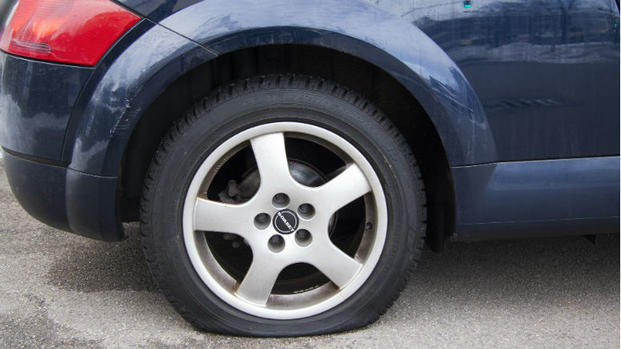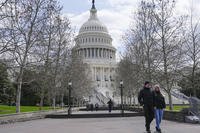One of the hardest parts of learning how to manage your finances is dealing with unplanned expenses that don't happen on a regular schedule. It's pretty easy to budget for rent, and cell phone bills, and groceries. It's the irregular or random expenses that can upset a budget. Because they're not regular, it can be tempting to call them emergencies. Now, there's no reason that you can't call them emergencies, but there are two reasons why you shouldn't.
Why You Should Avoid The Term "Emergency"
First, calling an irregular or unexpected expense an emergency absolves you of the responsibility to have planned for it. If it's an emergency, then you couldn't have planned for it, right? Well, yes, but I'm not talking about true emergencies. I'm talking about spending that should or could be anticipated.
Second, calling an irregular or unplanned expense an emergency makes it seem okay to use your emergency funds for it. Obviously, using emergency funds is better than going into debt, but if it's something that you should or could have anticipated, then it's something that you should have budgeted or saved for.
Things That Aren't Emergencies
Here is a long list of things that I've called emergencies, or I've heard other people call emergencies, that are not emergencies:
Car Repairs. Yes, there is some level at which a car repair might be considered an unforseeable emergency. However, 98% of vehicle repairs are completely predictable. Cars need brakes, cars need tires, cars need transmissions if you drive them long enough.
Bills That Happen Regularly, But Not Monthly. I've heard a lot of people say that their car insurance is an emergency because the bill is due and they don't have the money to pay it. Thankfully, most insurance companies allow you to pay monthly, and many (thank you, USAA) don't even charge you a fee for it. Other bills or expenses that happen less-than-monthly include trips, annual dues, Christmas presents, time-share maintenance fees, Valentine's Day.
House Repairs. Just like car repairs, there is some level of home repair that is a legitimate emergency, but be sensible. A flooded basement is an emergency (for which you hopefully have insurance.) A leaking hot water heater is something that you should anticipate will happen every so often. A tree falling on your house is an emergency, but trees requiring trimming is not.
Any Article of Clothing. Clothes are a necessity, and they don't last forever. Shoes, underwear, coats - they all wear out eventually. Uniforms are going to have to be replaced when they get ratty, or you promote, or they decide to change the uniforms. Again. No matter how much you hate everything you own, it's still not an emergency. Even a new interview outfit isn't an emergency, though it may be an investment for which it's worth bending the budget a little. Maybe.
Larger Than Usual Utility Bills. Sometimes, you're going to get a surprisingly big utility bill. It's usually in the summer or the winter, when heating and cooling can be expensive. If you use public utilities, you might consider budget billing, which allows you to pay the same amount every month. If you have an oil tank, or use propane fuel, you should expect that you'll need a refill at the worst possible time.
Anything That You're Buying "Because It's An Amazing Price!" If it isn't important enough to buy at full price, it isn't an emergency. Period.
Don't feel bad - we all do it. The key is to gradually improve your planning and saving so that eventually, some day, you aren't faced with expenses that surprise you unless they really are emergencies.
How To Avoid Dipping Into Your Emergency Fund For Non-Emergencies
There are three steps to planning for non-emergencies.
Step one is to accurately anticipate your expenses. Think critically, and make a list of all the expenses that you can reasonably anticipate in the future, but you can't pay out of your regular monthly budget. I like to think about a year ahead. My list looks like this:
car repairs and/or car replacement
big home maintenance
annual bills due in the spring: pool membership, community association dues, mosquito spraying
winter propane tank refills
Step two is to figure out how much money you need to save, and where you'll save it. From my example:
car expenses: $500 per month (we have old cars and anticipate purchasing a new-to-us car within the next two years), in a separate savings account.
big home maintenance: $200 per month, in our general "house" account.
annual bills: $65 per month, in a separate savings account.
winter propane: not sure yet, but starting with $100 per month, in our general "house" account.
Step three is to actually put that money into the right account each month. I have the transfers set up to transfer automatically. Yes, it is a huge bummer when $865 per month just "disappears" out of our main checking account. That inconvenience, however, is more than offset when we need a car repair or a propane refill, because the money is available to pay the bill.
What If You Can't Afford To Plan Like This?
That's a great question. Many people are living paycheck-to-paycheck, and can't figure out where they'd come up with even a few hundred dollars. How are you supposed to plan ahead for car repairs when you are barely making it through the month?
It's definitely hard.
You have two choices: decrease your expenses, or increase your income. I could write thousands of words on each of those two options, but plenty of other people have done that and you don't need me to tell you the same old things. Not sure where to start? Do an internet search on "cutting expenses" or "making extra money." What I will tell you is that a) you don't need to cut your expenses or increase your income forever, and b) it gets easier. Even a few months without cable can save you enough money to build up your car repair fund, and working a couple of nights a week during the holidays could fund your trip home next summer. The best part is that once you're not scrambling to cover these unplanned expenses, you'll free up the money to plan ahead for the next thing coming. It's a beautiful cycle that just keeps getting better.
If financial emergencies are keeping you in a financial hole, maybe it's time to re-evaluate these emergencies and address them as unplanned expenses. Facing your finances, and taking action, can (almost) eliminate this stress and drama forever.









